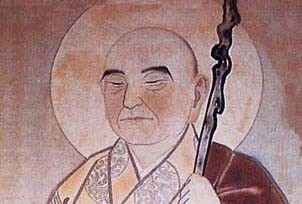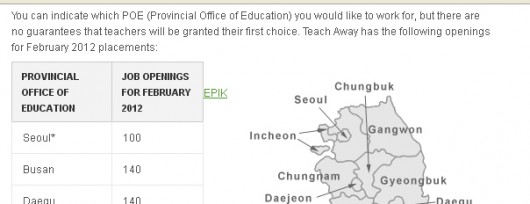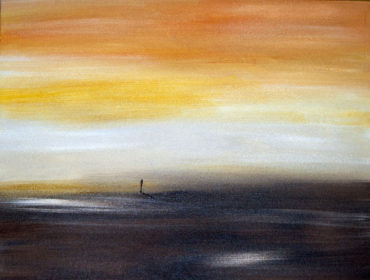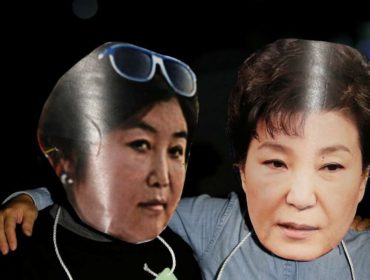By Rahn Kim (a.k.a. Hae Ran Kim, a.k.a. 김해란)
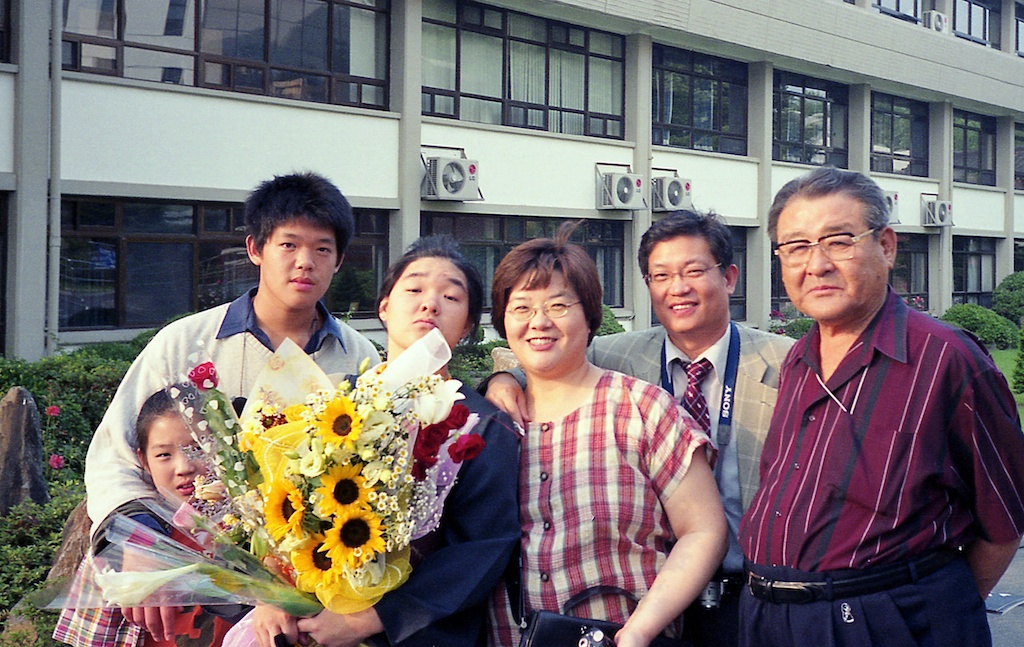
During my teenage years, I sometimes heard my father half-jokingly express his discontent at my lack of concern for appearance and embellishment, in other words, my lack of femininity. Then I would get an earful of his impromptu analysis—a symptom of his personality and psychiatric profession—attributing the influence of my nonchalant character to my mother’s disinterest in “feminine” activities such as make-up, beautiful hair, extravagant clothing, and so on. As disagreeable as that sounds, my parents’ love is surprisingly well-balanced and harmonious, like two peas in a pod. I wouldn’t call my father a misogynist, nor an obstinate or ignorant man. This is the same father who told the very young Hae Ran that every person is bisexual to some degree, the father who loves to contemplate the rich complexities and beauty of life and art while watching tear-jerkingly boring DVDs of operas and ballets, and the father who took my pure and untainted, maidenly fourteen-year-old sister to New York’s infamous and fabulous Museum of Sex’s special exhibition: “Fetishes.” Standing in front of the horse role-player exhibit, he profoundly announced to my squirming sister, “Look! This is important.”
Despite my father’s past comparisons, to juxtapose my humble twenty-five-year-old appearance with the treasured 1980s photograph of my twenty-something-year-old mother seems like a grievous insult to my beautiful and youthful mother. In hindsight, perhaps it is because my father understood people and our societies that, in his own stoic, stubborn way, he wanted to protect me from some of the agony that would result from my expression.
Most people have something from their younger years that they would rather forget: that awful perm you had when you were six, the really awkward moment when that heavy, pasty girl flashed you in the dormitory bathroom, or when you accidentally tucked your uniform skirt into your underwear, only to discover it a few hours too late. But the presidential prize goes to the sixteen-year-old Hae Ran with the bleached blond ponytail and gigantic hoop earrings that went beyond a simple fashion disaster. The evidence of this misadventure is locked away in a dusty high school memoir in an undisclosed location.
To date, the bleached blond hair and hoop earrings remain a taboo of taboos, my last spectacular performance of gender and my greatest drag show. Was it for my fourteen year old self—“Look! I’m a natural woman!,” a bitter, ironic proclamation to those Kiwis who called themselves my friends, my basketball buddies who snickered behind my back as I entered a neighboring school’s girls’ locker room? Or was it an over-compensation for my twelve-year-old self’s misery of polycystic ovarian disease, hormonal therapy and the dreadful bimonthly menstruation? Or was it a side-effect of my general confusion amidst the experience of my unrequited, unannounced first love, and my imminent coming out to myself in a cage called Seoul Foreign School?
Smack in the middle of Seoul, located adjacent to one of the most prestigious universities in Korea, Yonsei University, is Seoul Foreign School . It has absolutely nothing to do with Yonsei. It holds its own sacred ground, almost like a separate country, filled with children of foreign clergy, businesspeople, teachers, and missionaries. Although self-described as a diversity-embracing school, for all purposes, Seoul Foreign School was, and is, an American fundamentalist Christian school. It is a tiny, interbreeding and exclusive community catered toward the religiously devout and socially conservative, taught and run by generations of the same families: essentially a mom and pop operation charging corporate prices, monopolizing the elite international education in Korea, and proselytizing in the name of character building. This Seoul Foreign School, my alma mater, was the island that solidified my othering. Not one year, month, week, or day has been wasted in my life in becoming who I am. But if I were to choose a time in which things were really set in motion, when I started becoming the person that I am today, that would be my fighting time at Seoul Foreign School. I fell in love, I came out to myself, politically, philosophically, unreligiously, sexually, and I lived through a glass wall, perpetually jet-lagged and out of place. I guised myself with my bleached blond hair and over-sized hoop earrings until, thankfully, I grew out of this sad comedy. At eighteen, I graduated high school as a varsity basketball player with a down and dirty, super-functional—and naturally dark brown—ponytail. It was dubbed “the sumo-wrestler,” and I, “the liberal.”
One whole decade into my gender journey, it has become something like an occasional twitch in my eye; or the sticky dog poo that just won’t come off of my shoe; or that irritatingly long nose hair sticking out of that gorgeous woman’s picturesque nose. My life is as tragic as I make it to be, and really, it’s not that tragic. I’m a privileged child of a privileged generation. The shock of being chased out of the John F. Kennedy Airport women’s bathroom by the indignant janitor, on August 23, 2004, (my first day on U.S. soil) as well as all those dozens of other times that I have been spotlighted and interrogated in women’s bathrooms, have been, at the very least, unpleasant. I learned it the hard way that my long hair and small/medium breasts were of insignificant consequence to my overall gender expression. But this “tragedy” plopped me in a most intriguing position, one of someone who terrorizes the gender spectrum, who sometimes gets “read” and sometimes doesn’t, and someone who has lived as both genders. Unlike many non-transgenders and transgenders, my gender allegiance and affiliation is non-specific. Do I appear a weak, non-threatening, effeminate guy? Is my “emasculation” intensified by my ethnicity, leading to my frequently being perceived as a gay man? Or do I appear an incredibly masculine dyke? Am I a fake, a propagator and an opportunist of the hetero-sexist system? Much to some people’s chagrin, I am a drifter. “CHOOSE ONE!!” their thunderous telepathy implores.
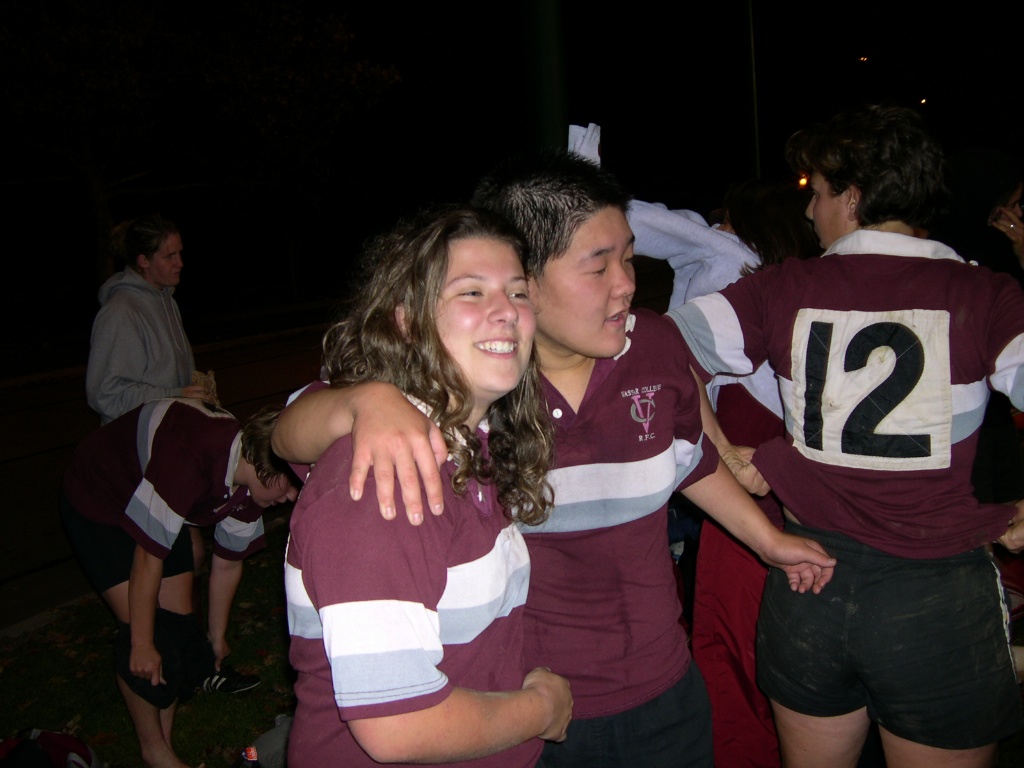
In the Spring of 2008, after my three years at the liberal queer haven of Vassar College, I continued filmmaking for two years at New York University’s Tisch School of the Arts. Primarily a narrative filmmaker, I had just started to experiment with the documentary genre. And so it was born: my desire to create a documentary on the Korean queer experience. Relatively fresh out of Vassar College, I still had a good amount of the idealist blood kicking through my veins. The real crack in my head, the terribly rude awakening to my naivete came in the form of a Columbia University graduate student, Bora, a homegrown Korean lesbian. The moment that we met for the pre-interview, I rubbed her the wrong way. “Oh I know you said genderqueer, but I don’t expect…I expect more like woman.” This was the beginning of a very bad encounter. We chatted. In an effort to get to know her better, I asked her age—huge mistake. Livid, she said, “In Korea, you don’t ask woman’s age. It’s rude.” From this point on, whatever I said infuriated her. She was a “feminist,” and a bisexual who chose to become a lesbian. She found me arrogant and presumptuous for thinking that I could speak for something (the Korean queer experience) I “knew nothing about,” and was incredibly discomforted by how much I looked like a man. To her, I was a man—worse, a “fake man,” an unforgivable abomination to femininity and progress. Bitter arguments followed. All of a sudden, I was time-warped to 1970s America. The butch hunt was on. For days and weeks afterward, I suffered a kind of trauma, an ailing heart from this nasty reality check. The scale of this rejection stretched far and wide, hitting my ethnicity, gender, sexuality, political ideals, and even my very own experiences. She blitzkrieged them like a true master.
I harbor a savior complex and filmmaking is my miracle—or so screamed the picture that Bora painted when she accused me of wanting to save those “poor” Korean queers from themselves and the oppression they are suffering. At first, I wanted to laugh really hard but I couldn’t. I choked instead. Next, although admittedly I am ineptly trained to process all the delicate psychology within this scenario, I realized that this woman had some serious complexes, perhaps even greater than mine. My crimes were of being a “fake man” who no longer belonged with or could identify with the “women,” queer or otherwise, never mind the fact that my girlfriend of six years introduces me as her girlfriend. I was a privileged Korean (queer) who, by having formed bridges with other societies that have more progressive views on homosexuality and gender identity, had, in her eyes, lost the title and the right of a Korean (queer). Then I was an idealist who dared dream that we could, with an umbrella humanitarian effort, collectively address all discrimination, whether it be racism, transphobia, misogyny, homophobia, and more: circle back to the crime of being a “fake man.” It was clear that we could not communicate with each other. My grappling with cultural identity and roots, and my concept of change for the better offended her, as she tried to justify the current way of life, an oppressed status quo, and attempted to paint a rosy picture of living as a discriminated subgroup in Korea. (Circle back to the accusation of a savior complex.) Perhaps worst of all, I was an alien unaware of Korean (gendered) etiquette, a man who had committed the ultimate taboo and sin of asking a lady’s age. With this colossal mess of “reverse” sexism, identity politics, cultural barriers, and consequent wallowing in a pool of guilt over my disgusting place of privilege, I temporarily frightened myself further into my island of cultural limbo.
I’m afraid of many things. I’m terrified of regrets. One of my deepest, most painful regrets is my glaring absence from my family. A boarding student at Rangi Ruru Girls’ School from age thirteen to fifteen, and 6200 miles away from Seoul, I parted from my family very early on. Even though we reunited in Korea for my last three years of high school, I never regained the complete distance in between us. My wandering may have been a symptom of my age, or on a deeper level, it may have been the need to run from cultural, traditional and familial obligations, or the desire to break out of my closets. Suffocating in these sexually and religiously repressive environments, and suffocated by my own hypersensitivity, I looked toward the future for the secret to my liberation. For this short-lived sense of freedom, I traded in much of my precious time with my family. While I thrashed about in my private sorrows and the confusing heap of identity fragments, I have missed too much—my greatest mistake culminating in my almost four-year absence from Korea from January 2007 to December 2010, during which time I inadvertently neglected my family. For almost four whole years, I did not see my mother’s face.
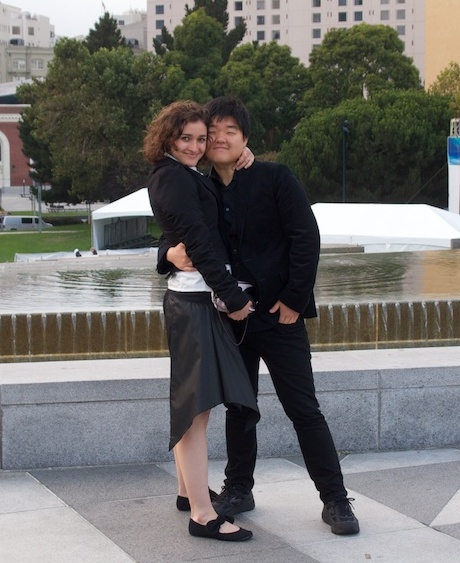
At eleven and half years old, my eight and a half years junior, adorable, and loving little sister Haesung still stood at a wee height. This was when she first met Shaina, my girlfriend, best friend, soulmate and domestic partner. We embarked on an exciting, lovey-dovey odyssey back in September 2005, and have been living together since that October. Shaina is my other half, a part of the family, and has been a sister to Haesung for almost a third of Haesung’s life. From time to time, Haesung comes all the way across the ocean and visits our tiny apartment, as she did in the Summer of 2010.
“You speak Korean like an American,” said Haesung, now fifteen years old and not such a baby anymore. After years of running away from Korea, Koreans, and even my own skin, my native tongue was quickly slipping away—the copious amount of perspiration and massive brain farts betrayed my cool, jolly facade during the occasional attempts to converse with my mother on the phone. Half-jokingly or not, Haesung didn’t sugarcoat it. She wouldn’t lie to me. Those words smashed through my hardened skin with an extra fatal power of truth, love and respect. My already waning linguistic confidence shattered on impact and I moped and cried a little inside. Haesung didn’t have an ounce (or a gram) of malice in her. Even though, for so many years, my younger brother Jooik, the middle child, had been much more of an older sibling to my sister than I ever was, for a fortunate reason beyond my understanding, she still idolizes and admires me. That’s a miracle, a godsend, since in my new-found maturity, I’ve come to shamelessly dote on my two younger siblings.
If there’s an Achilles’ heel on my self-protective buffer, it’s my baby sister. “I don’t want to cause you any problems,” I said. “It’s fine if they make judgments about me… but I don’t ever want you to become collateral damage.” On a rare beautiful sunny day in San Francisco, we strolled the charming Fillmore Street of Lower Pacific Heights. “That’s one of the reasons why I’m afraid to return and visit Seoul Foreign School. At least until you graduate. I don’t think they will… but if they ask about me, you know, you can just say whatever. It’s okay. You’ve gone to school there forever… You have lots of friends there…” After a moment’s consideration, she replied, “I don’t need to hide it. If anyone has a problem with it, even if it’s my friends, I’ll always stand up for you.”
On May 10, 2004, his fifteenth birthday, Jooik, my brother, became the first person that I came out to. He has been my stoic ally ever since, albeit a quiet one as the distant middle child. Shattering his usual grandfatherly demeanor, I saw Jooik shed tears for the first time in over a decade, in January of 2011, empathizing with my self-pity, my pain and my regrets. In a cathartic epiphany, perhaps inappropriate for someone who had just made somebody else cry, I thought, “My brother loves me!” He really does.
It wasn’t all smooth sailing with my parents, who, regardless of their relatively progressive views, are inevitably an older generation of an old world society. But the pain of coming out to them has subsided over the last seven years. As I mellow and my perspective evolves, I’ve come to the understanding that this pain is a mere hiccup in our bond, and that their desired place is as my allies.
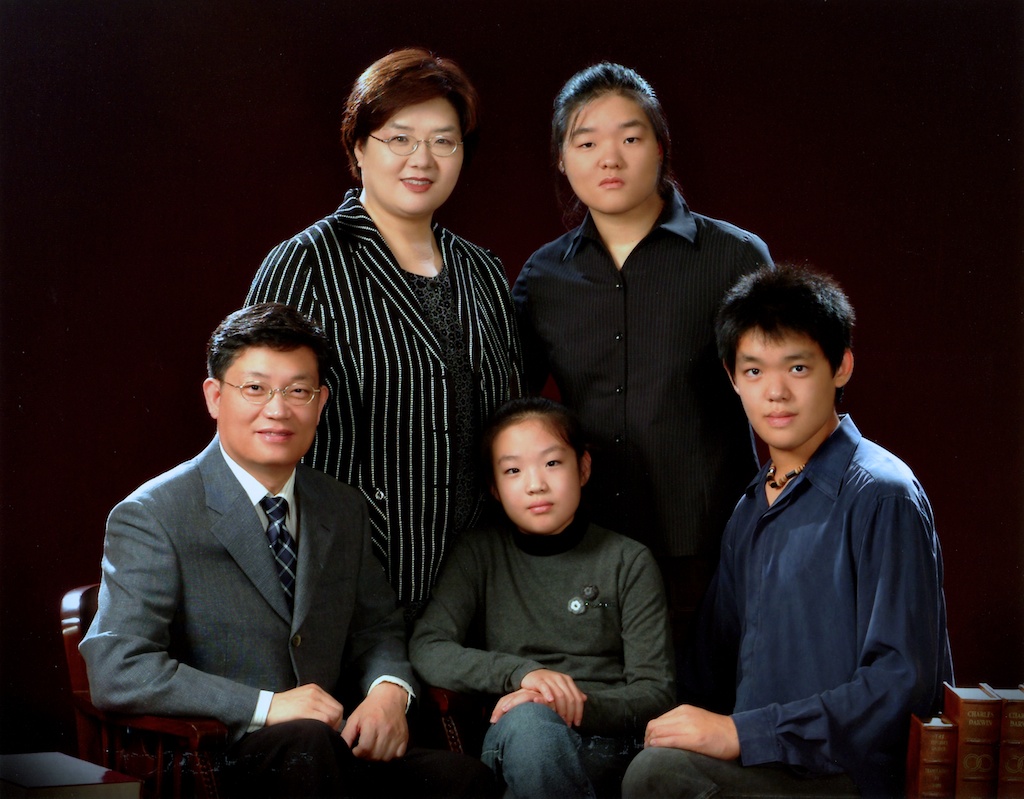 I live on an island, my carefully constructed fortress, my home base, built over the course of many years—perhaps starting the very day I kicked that poor boy’s nuts. This island exists in a cultural limbo, a Third Culture that simultaneously works within the globalized multicultural experience and is devoid of it. It is a kind of freedom gained from a deal with the devil, as this privilege comes with isolation. I live like a pirate, a global nomad with a handful of mates that I would die for, and sometimes making temporary connections with others, but too often, shedding them. I take what I need from where I can find it, but always with one foot on my ship. My sincere wish for stability is a mere thought experiment today, but for those that I treasure, love reaches beyond the burdens of obligation and compromise. I’m never vague about where my loyalties lie. With close to no nationalism, subcultural ties, and pressure of obligation, my personal nomadic community is held together by individuals of my family—my father, mother, brother, sister, and my other half. I really love them.
I live on an island, my carefully constructed fortress, my home base, built over the course of many years—perhaps starting the very day I kicked that poor boy’s nuts. This island exists in a cultural limbo, a Third Culture that simultaneously works within the globalized multicultural experience and is devoid of it. It is a kind of freedom gained from a deal with the devil, as this privilege comes with isolation. I live like a pirate, a global nomad with a handful of mates that I would die for, and sometimes making temporary connections with others, but too often, shedding them. I take what I need from where I can find it, but always with one foot on my ship. My sincere wish for stability is a mere thought experiment today, but for those that I treasure, love reaches beyond the burdens of obligation and compromise. I’m never vague about where my loyalties lie. With close to no nationalism, subcultural ties, and pressure of obligation, my personal nomadic community is held together by individuals of my family—my father, mother, brother, sister, and my other half. I really love them.
My jjambbong[1] identity will, undoubtedly, continue to shift with time.
[1] A dynamic spicy Korean noodle soup, the originating country and name of which is unclear. Speculations include late 19th century, early 20th century, Japan, Korea, China, or a mix of a few. Even as recently as the 1970s, jjambbong was not a spicy dish. It has transformed over time and still comes in many variations, cooked with a festive jumble of spices, sauces, vegetables, seafood and meats.
____________________________________________________________
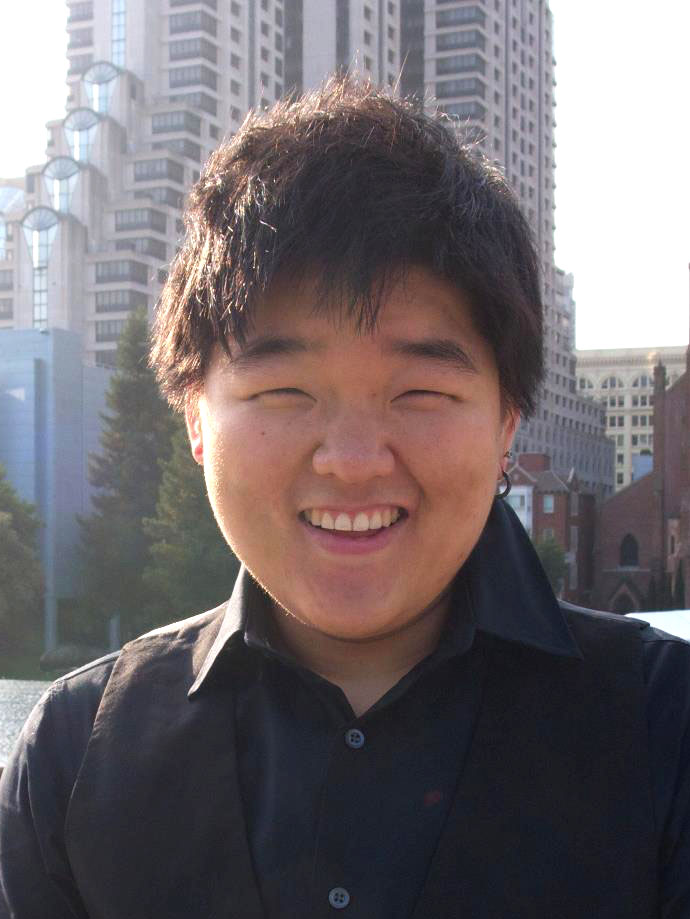 Rahn aka Hae Ran Kim is a filmmaker, 3D artist, sort of writer, and second (and last) year graduate student and Master of Fine Arts candidate at San Francisco Art Institute, one of the oldest art schools in the United States, renowned for its experimental edge. Since 99% of Rahn’s work is not experimental, Rahn doesn’t really know why she’s at this school, but she’s making the best of it and trying to scrounge together enough money for the last semester. Rahn is a Vassar College transfer-out and a New York University- Tisch School of the Arts grad. Rahn lives with her partner Shaina and no pets, but hopes to raise a miniature pig in the future when they can afford one. They are vegan. You can find Rahn and Shaina’s work and contact them at: http://www.kovalkim.com
Rahn aka Hae Ran Kim is a filmmaker, 3D artist, sort of writer, and second (and last) year graduate student and Master of Fine Arts candidate at San Francisco Art Institute, one of the oldest art schools in the United States, renowned for its experimental edge. Since 99% of Rahn’s work is not experimental, Rahn doesn’t really know why she’s at this school, but she’s making the best of it and trying to scrounge together enough money for the last semester. Rahn is a Vassar College transfer-out and a New York University- Tisch School of the Arts grad. Rahn lives with her partner Shaina and no pets, but hopes to raise a miniature pig in the future when they can afford one. They are vegan. You can find Rahn and Shaina’s work and contact them at: http://www.kovalkim.com
 Print This Post
Print This Post



